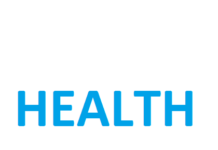BRITISH Columbia is experiencing higher levels of invasive group A streptococcal (iGAS) infections compared to historical averages, particularly among children.
While much less common than other causes of seasonal illness in children, there have been 51 cases of iGAS in 2023 for people under the age of 20, over twice as many as expected. In comparison, there were 20 cases in this age group in 2022.
Bacteria known as Streptococcus pyogenes, group A, typically cause mild illnesses such as strep throat or impetigo, a skin infection. While most people will recover with antibiotics, these infections can become more dangerous when the bacteria invade the lungs, blood, or spread along the tissue surrounding a muscle.
These more severe illnesses are known as iGAS infections and can cause pneumonia or sepsis and include conditions such as toxic shock syndrome and necrotizing fasciitis. These conditions can be life-threatening. People with chronic illnesses such as cancer, diabetes, and chronic heart or lung disease, and those who use medications such as steroids, are at higher risk.
While serious infections remain extremely rare, BC Centre for Disease Control and BC Children’s Hospital are advising families to be aware of symptoms of concern, and when they should seek clinical care for their infant or child.
iGAS infections can sometimes develop after a viral respiratory illness. Parents of children who have been recently ill can monitor for one or more signs of severe infections such as:
- A fever for more than five days in a child of any age
- Fever with either a fine red rash (sandpaper-like texture), full body rash similar to sun burn in appearance, and/or red, swollen tongue
- A fever in a child under three months of age, a child with immune system issues or complex chronic health conditions
- Child is working hard to breathe (e.g. chest appears to sink in just above or below the breastbone with each breath, you may hear grunting or notice the head bobbing with each breath in a young infant)
- Pale skin, whitish or blue lips
- Very sleepy or having difficulty waking up
- Child becomes very sick, very quickly
If a child is experiencing these symptoms, seek medical care right away by visiting your nearest emergency department or urgent and primary care centre, if available in your community.
Rates of iGAS infections have been increasing in B.C. since 2016, where there were 303 cases reported in B.C. across all age groups at a rate of 6.2 cases per 100,000 people. In 2022, there were 466 cases across all ages. There have been 547 cases to date in 2023 at a rate of 10.1 cases per 100,000 people.
Several other countries and regions in Canada have also seen a higher frequency of these infections in children.
Prevention
While there is no vaccine to prevent group A streptococcal infections, there are things you can do to prevent illness in general including:
- Clean hands regularly
- Clean wounds and watch for signs of infection
- Stay up to date on your immunizations including getting the updated COVID-19 and flu vaccines
- Stay home when sick to prevent the further spread of illness.
In some cases, antibiotics are recommended for people living in the same household as someone with an iGAS infection.
If you have questions, contact a healthcare provider, or call HealthLinkBC at 8-1-1 for free healthcare guidance, available 24/7.
Learn More: http://www.bccdc.ca/health-info/diseases-conditions/streptococcal-disease-invasive-group-a














